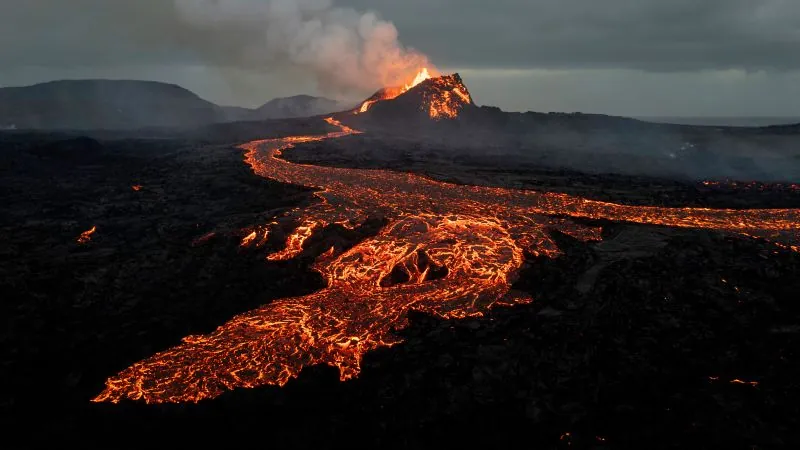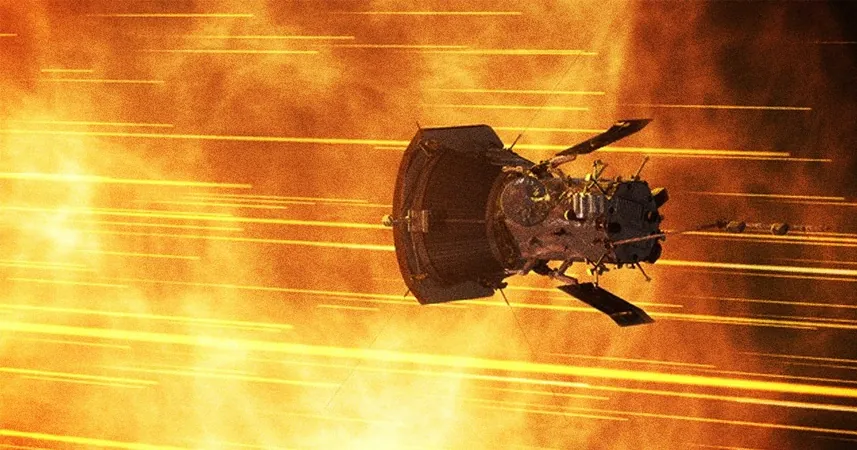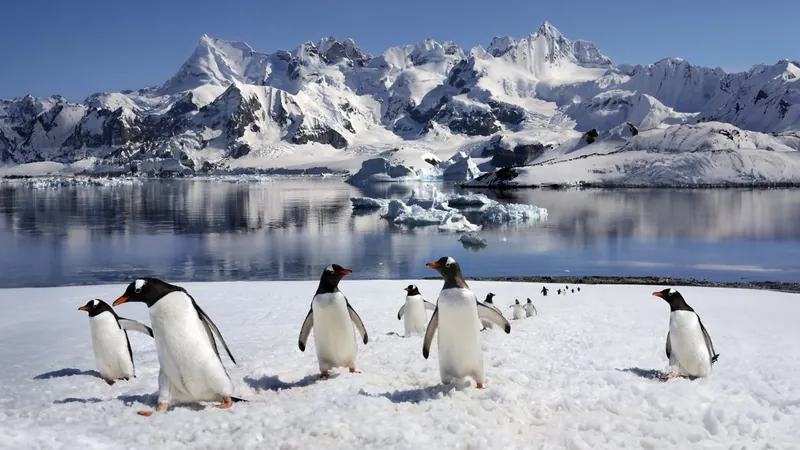
Is a Catastrophic Volcanic Eruption About to Hit? Experts Warn of Global Chaos
2024-12-24
Author: Wei Ling
Historical Context of Volcanic Eruptions
Mount Tambora reshaped history in 1815 with one of the largest volcanic eruptions ever recorded, casting dust and ash high into the atmosphere and resulting in a year of unprecedented climate chaos known as the 'Year Without a Summer.' This climatic disaster triggered widespread crop failures, famine, and even influenced literature, as Mary Shelley famously conceived her work 'Frankenstein' amidst the unusual chill in Switzerland the following year.
Current Threat Level
Over two centuries later, scientists are sounding the alarm that the world may soon face another colossal volcanic eruption, and experts believe we are ill-prepared for its consequences. According to climate professor Markus Stoffel from the University of Geneva, there's a concerning 1-in-6 chance of a massive eruption occurring within this century.
The Impact of Volcanic Eruptions on Climate
Volcanoes play a key role in Earth's climate by ejecting a myriad of gases and particulates during eruptions. While they emit carbon dioxide—albeit in quantities far smaller than those produced by human activities—the gas of greatest interest to climate scientists is sulfur dioxide. When volcanoes launch sulfur dioxide into the stratosphere, it forms aerosols that reflect sunlight and can cool the planet for years to come.
Historical Data and Examples
Historical data shows that volcanic eruptions have historically led to significant global temperature drops. For instance, the 1991 eruption of Mount Pinatubo in the Philippines, though not as massive as Tambora, decreased global temperatures by nearly 0.5 degrees Celsius for several years. In contrast, Mount Tambora caused a drop of about 1 degree Celsius, while the Samalas eruption in 1257 may have initiated the 'Little Ice Age,' an extended period of global cooling.
The Current Climate Crisis
In an era of rapid climate change, the implications of a volcanic eruption could be even more severe. As professor Michael Rampino from NYU notes, "It’s a more unstable world now," suggesting the climatic disruptions could surpass those seen in 1815. The accelerated air circulation in a warming atmosphere means that the cooling effects of aerosols from a large eruption might be intensified, leading to more drastic temperature reductions.
Risk to Populous Areas
A more immediate risk is posed by the proximity of populous cities to active volcanic regions. An estimated 800 million people live within 60 miles of volcanoes, with Campi Flegrei near Naples, Italy, marked as particularly concerning due to its signs of activity.
Long-term Ecological Impact
Such a volcanic event could have catastrophic long-term effects on the planet's ecosystems. A temperature drop of just 1 degree Celsius on average might not sound alarming, but in specific regions, the reduction could spike as high as 7 degrees Celsius, threatening agricultural production in key global breadbaskets such as the U.S., China, and Russia. This could trigger not only food shortages but geopolitical tensions, with financial analysts predicting economic losses could exceed $3.6 trillion in the wake of a massive eruption.
Need for Preparedness
With potential eruption sites under constant observation, including Indonesia's ring of fire and the dormant Yellowstone supervolcano, the unpredictability of volcanic activity remains a critical concern. While scientists and experts work towards understanding past eruptions, they emphasize the need for comprehensive preparedness strategies, including evacuation plans, food security measures, and thorough assessments of worst-case scenarios.
Call to Action
Although the microbial probability of a massive eruption might appear modest, experts like Stoffel stress, "It’s really not nothing," urging global leaders to take steps now to mitigate the repercussions of a potential disaster. As we stand on the cusp of potential upheaval, the world is left pondering: are we truly prepared for the next catastrophic event waiting to erupt?


 Brasil (PT)
Brasil (PT)
 Canada (EN)
Canada (EN)
 Chile (ES)
Chile (ES)
 España (ES)
España (ES)
 France (FR)
France (FR)
 Hong Kong (EN)
Hong Kong (EN)
 Italia (IT)
Italia (IT)
 日本 (JA)
日本 (JA)
 Magyarország (HU)
Magyarország (HU)
 Norge (NO)
Norge (NO)
 Polska (PL)
Polska (PL)
 Schweiz (DE)
Schweiz (DE)
 Singapore (EN)
Singapore (EN)
 Sverige (SV)
Sverige (SV)
 Suomi (FI)
Suomi (FI)
 Türkiye (TR)
Türkiye (TR)